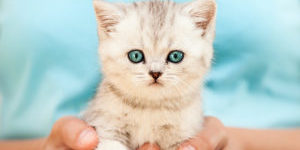Can Cats Get Parvo?


Chances are most people in our area have heard of parvo. It is a life-threatening viral disease of puppies and unvaccinated dogs that causes severe vomiting, diarrhea, inappetence, dehydration and lethargy. Puppies that get parvo typically require intensive treatment in the hospital for several days. Without treatment, it is generally fatal.
What many people do not realize is that there is a very similar disease that cats can get called panleukopenia. This feline version of parvo is every bit as serious as the parvo we see in dogs – so why is it something most people don’t know about? Thankfully, it is because the vaccination for this disease is quite effective, making it a very uncommon illness.
There has been renewed interest in panleukopenia in our area because there have been outbreaks of it in some of our local shelters and rescues this summer. These cases have mainly involved kittens but adult cats have been affected as well.
Symptoms can be the same things that were mentioned above for the canine parvovirus, but not all cats will develop the classic vomiting and diarrhea. Some infected cats may just act weak and stop eating, and it can also be a cause of “fading kitten syndrome.” We can test cats for this infection with the same tests that are used to check for dog parvovirus.
This virus is highly contagious and it is hard to get rid of it once it is in the environment. Only a few specific disinfectants are able to kill it. The mortality rate is very high, and historically ranges from 50-90% for infected kittens. This makes vaccination of your cats and kittens extremely important. This vaccine goes by many names, but it is most commonly referred to as feline distemper or FVRCP. It is considered part of the core vaccine protocol that is recommended for all cats regardless of lifestyle.
